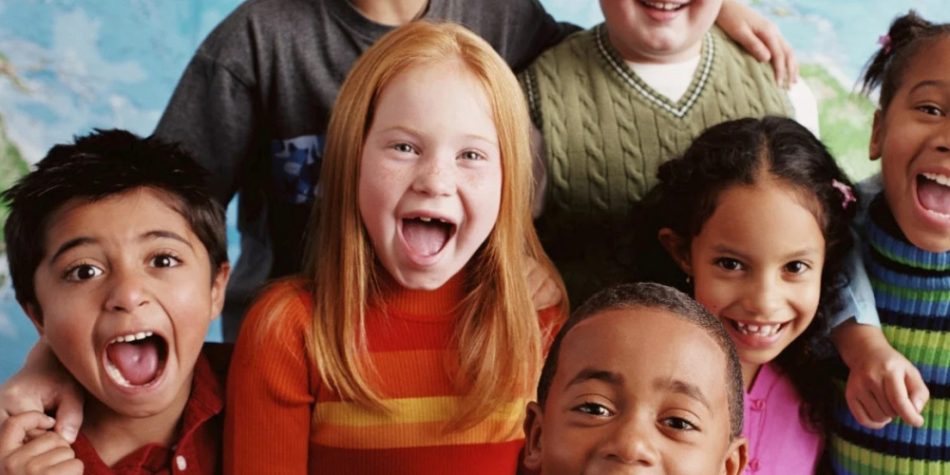Heartbreaking reports of horrific abuse of children often result in introspection. How and why did so many adults fail the children in their community? These difficult questions often result in calls for action, almost invariably focusing on the need to increase reporting.
That’s understandable. Child abuse is a real evil, and children deserve the utmost protection. Yet we should be extremely cautious that our outrage is not translated into advocacy for policies that not only don’t adequately protect children but may ultimately be harmful. This is the case, I argue, for calls to expand mandated reporting. Increased reporting sweeps up large swaths of the population in a network of coercive investigations and interventions but doesn’t help keep kids safer.
Research on reporting. Since the 1970s, American child welfare policy has singularly focused on reporting as the primary policy to keep children safe. This was despite a lack of evidence for its effectiveness and sometimes despite clear evidence to the contrary. Multiple studies have found that increased reporting does not keep children safer, but creates a heavy load for already overburdened caseworkers to weed through. Amid a glut of unnecessary reports, child welfare workers may be more likely to overlook a child who really is at risk of imminent harm. More children are reported, yet children are no safer. This is no anomaly; it’s two sides of the same coin: our failed child welfare policies that prioritize reporting and investigations rather than services and supports. We should be extremely cautious that our outrage is not translated into policies that don’t adequately protect children, and may ultimately be harmful.
In the aftermath of the Gerald Sandusky case, where former Penn State assistant football coach had sexually abused boys for decades, Pennsylvania legislators passed numerous statutes expanding mandatory reporting requirements. As a result, reporting hotlines were inundated with calls, some calls were dropped or unanswered, and the child welfare agencies faced the difficult task of sifting through mountains of abuse reports. Yet Pennsylvania’s children were no safer. On the contrary, there were increases in subsequent years both in rates of child fatalities and near fatalities (where a child was placed in serious or critical condition as the result of an act of abuse or neglect). While numerous factors, including the opioid epidemic as well as how near fatalities are defined, might also be at play, it’s clear that increasing reporting in Pennsylvania did not help improve the safety of the Commonwealth’s children. More reporting does not equal better outcomes for kids.
Disproportionate consequences for families of color. It’s important to recognize that the overwhelming majority of calls to protective services involve concerns for neglect rather than for physical or sexual abuse. Neglect is all too often conflated with poverty, and struggling parents can find themselves balancing two jobs, skipping meals to feed their kids, but also face the extra burden of a child welfare investigation. We know that one out of every third child in the US is the subject of a child welfare investigation; among African American children, the rates are even higher. Yet a majority of child abuse investigations end not only without a finding of abuse but also without the provision of new services to parents. And while this system disproportionately impacts low-income families and families of color, a number of publicized cases highlight that education, money, or even a medical degree cannot protect families from this kind of well-intentioned but ultimately coercive intervention.
Furthermore, while physical and sexual abuse of children is a rare but horrific event that may happen in families of all walks of life, increased reporting requirements primarily increase the number of poor families of color who are reported for allegations of neglect, often as a function of structural inequities. There is an abundance of testimonies that can clearly illustrate this. For instance, when a school called one Black mother, working as a hairdresser, she was unable to pick up the phone for thirty minutes, as she was cutting a client’s hair. During this time, the school filed a report. Such cases, which reflect racial and structural biases, are the cases that are more likely to be reported when requirements are expanded. We’d all like to think that increased reporting requirements would increase the likelihood of preventing or detecting physical and sexual abuse. That does not seem to be the case. Increased reporting is also associated with the increased removal of children from these kinds of non-abusive homes, an intervention that causes harm to children, including post-traumatic stress, and corrodes the vital ties between children, their families, and their communities.
Inadvertent consequences of a “policing culture.” There are other ways in which a culture of reporting can be harmful to communities, creating hesitance and even avoidance among parents who might otherwise seek services or medical care for their vulnerable children. It is no wonder that many family advocates refer to child protective services as a form of family policing. Rather than enhancing support and resources, child protective services invest their energy in amassing reports, investigating allegations, and making recommendations about whether families are “allowed” to remain intact and under what conditions.
Today’s child welfare system is a model of policing families and communities. Like other policing cultures, it creates a culture of reporting, suspicion, and lack of accountability. This often results in the premature and hasty removal of children from their homes, sometimes carrying their personal belongings in trash bags and sleeping in child welfare agency offices. The current system is broken and harmful.
Of course, well-intentioned adults across the political spectrum care deeply about the safety of children. But all too often, this concern is translated into knee-jerk policy responses that do not improve the safety or well-being of children and may, in fact, cause distinct harm. It is important to understand the unintended consequences of expanding mandatory reporting and for advocates to familiarize themselves with which interventions have been proven to help children thrive. Instead of expanding reporting, we should expand supporting.
Contrary to popular calls today, we should move away from a model that prioritizes mandatory reporting and, as other activists have argued, focus on mandated supporting. Families need resources to thrive, and poor families need access to material support to meet their parenting goals. Longtime child abuse physician and advocate Eli Newberger has described the “abusification” of child welfare; rather than offering support to parents and families, the first step has invariably become the reporting of abuse or neglect. Instead of expanding reporting, we should expand supporting. Supports for families, including expanding Medicaid, child tax credits, access to affordable high-quality child care or respite care, and safe housing would help uplift families and enhance their safety.
Policies designed to protect children should be based on evidence and should work in conjunction with, and not against, families and communities.
















